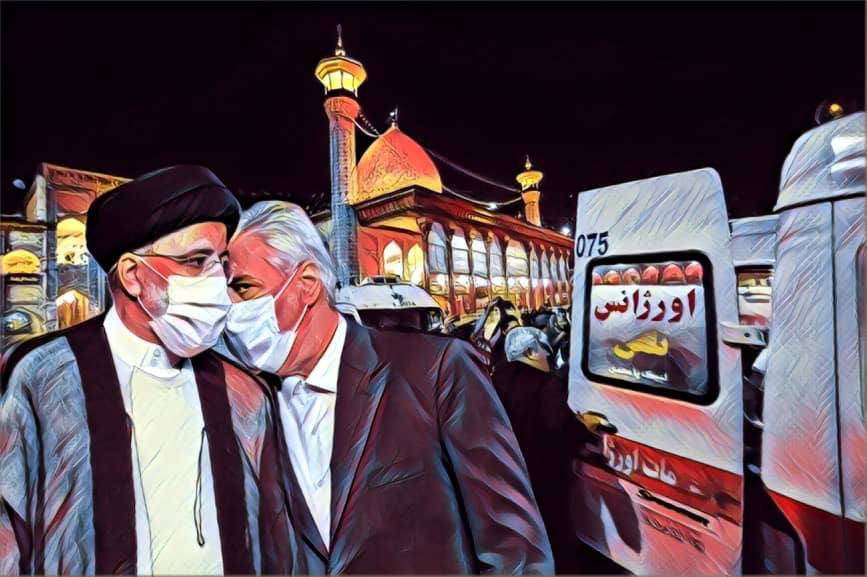Why don’t terrorist attacks lead to societal empathy?
Why don’t terrorist attacks lead to societal empathy? According to Iran Gate, the Shah Cheragh shrine witnessed a terrorist operation for the second time in less than a year on Sunday, August 13, 2023. The recent operation, carried out by Islamic fundamentalist groups in Iran, sparked numerous reactions from Iranian users on social media.
Generally, terrorist attacks in Iran have intensified social divides and activated fault lines that could lead to societal earthquakes. Meanwhile, developed and even developing societies tend to reach a form of empathy and unite against threats when faced with such attacks.
However, experiences like Shah Cheragh in 2022 and 2023 have shown us that such blind terrorist attacks have not led Iranian society to a form of unity against terrorism. But what is the reason for this, and what is the role of ideological perspectives in a unified governance in this matter?
The truth is always on my side.
Ideological governments always claim that they possess the truth and reject any narrative other than the official one. The Islamic Republic is no exception and, like other totalitarian systems that rely on the pillar of ideology, always claims to be the custodian of truth.
This is why, during incidents like such terrorist attacks, it presents a narrative and completely rejects other narratives. However, this approach by ideological systems has many harms and can have destructive consequences, including the fragmentation of society, a phenomenon that can lead to a lack of unity and solidarity in the face of events similar to recent terrorist attacks.
One disaster, one narrative.
This authoritarian approach by governments like the Islamic Republic causes confusion in society. The official narrative, due to the ideological approach of the government, is often detached from reality and cannot explain all aspects of disasters.
However, due to society’s access, albeit limited, to multiple news sources, the government cannot dominate the narrative field. But it must be noted that the authenticity of news sources and information dissemination channels is not always confirmed, leading society to become fragmented and unable to distinguish between false and authentic narratives.
This situation first leads to the public’s distrust in the government’s official narrative. Subsequently, another disaster occurs, which is the severe division within society when facing disasters that could ordinarily unite people against ominous phenomena like terrorism.
And man created the conspiracy theory.
Sociologists believe that conspiracy theories are the result of public distrust in the narratives of rulers. This issue is quite evident in Iran and seems to be more prevalent and earlier in society compared to most countries in the region. The reason for this, as mentioned, is the public’s distrust in official media and governmental sources for disseminating narratives.
It’s always their doing.
For example, regarding the terrorist attacks at the Shah Cheragh shrine, which occurred for the second time in a year, this social reaction is observed. A significant portion of society, before reading or hearing any news or analysis on the matter, pointed fingers at the government and used the repeated phrase ‘it’s their doing.’
This predictable reaction from Iranian society has been observed in many ongoing events over the past decades, even in other terrorist attacks such as the bombing at the Razavi shrine on June 20, 1994, the bombing at the Shiraz Martyrs’ Hussainiya on April 12, 2008, the bombing at the mausoleum of the founder of the Islamic Republic, and the attack on the Iranian Parliament building on June 7, 2017, the attack on the military parade in Ahvaz on September 22, 2018, and finally the terrorist attack on the Shah Cheragh shrine on October 26, 2022, and August 13, 2023.
Raisi’s government and the deepening of the trust gap.
Given these circumstances, Ebrahim Raisi’s government makes no effort to dispel such a mindset in Iranian society. It may even welcome the spread of such rumors, as it believes that many young protesters in November 2022 were frightened and refrained from continuing their presence in the streets upon hearing rumors of the government’s involvement in the Shah Cheragh terrorist attack.
At first glance, such reasoning by Raisi’s government may seem correct, but what is happening is the deepening of the trust gap between the government and society, which cannot be filled or compensated with any means. In fact, Ebrahim Raisi’s government intends to solidify its position by leveraging the social capital of the state’s institutions to suppress protests and silence the voices of dissenting people.
As mentioned, such an approach will not help the sustainability of the government but will exacerbate distrust and dissatisfaction with the government. Naturally, the continuation of this behavior by Ebrahim Raisi’s government will cause society to rapidly move towards a boiling point, a movement that can no longer be stopped and will bring the Islamic Republic to a point of no return.
English
View this article in English

